Time Division – Andrew Lynch
Time Division is a card game with a simple premise. The first player plays a card, and then the second player plays one. Whomever plays the higher card gets to make a choice: one player scores their card, the other player uses their card ability. That’s a great premise for a game, and I know the kind of game Time Division wants to be, but it isn’t very good. There’s almost never an interesting tradeoff to be found. Whether it’s better to score or to use your ability is always obvious.
I held out hope that the game would grow with familiarity, that new layers of complexity and planning would reveal themselves. It doesn’t, and they don’t. Time Division wants to be a game like Match of the Century, a game filled with tense trade-offs and hard decisions about what’s better in the long run. It doesn’t get there. Even after five or six games, there’s not much of anything to discover.
Ease of entry?:
★★★★☆ – The odd bump or two
Would I play it again?:
★★☆☆☆ – Would play again but would rather play something else
Read more articles from Andrew Lynch.
Odin – Andy Matthews
I’m a big fan of HELVETIQ, those tiny boxes always punch above their weight—literally. Games like Tucano, Bandido, and Kariba are simple decks of cards that are filled with fun. In Odin, players aim to have the lowest score at the end of a round in which one player reaches 15 points. The goal is simple: play a card (or cards) which beat the set in the middle of the table. If the player before you plays a 9, then you can beat it by playing an 8 and a 1 (combining the numbers to get 81). Then the player after you can play a 3, a 2, and a 4 (combined to make 324)–you’re always arranging your played cards in order to achieve the highest possible number. The catch is that all the cards you play must be either the same color, or the same number.
Our first play fell a bit flat—each of us was a bit underwhelmed with how the gameplay felt. But on subsequent plays we started to discern some strategies, most importantly that passing is not only legal, but also critical. This is because after playing a set of cards you must pick up 1 of the previous set and place it in your hand. So if you’re not able to play at least 2 cards, it might not be worth playing at all.
All in all I’d say that Odin is a solid and interesting game—but given its similarities to SCOUT, I’m not sure I need both in my collection…and SCOUT is definitely a superior game.
Ease of entry?:
★★★★★ – No sweat
Would I play it again?:
★★★★☆ – Would like to play it again
Read more articles from Andy Matthews.
Dawn on Titan – Justin Bell
During my read of the rulebook, Dawn on Titan seemed to be at least interesting, thanks to a tight map and clever mechanics around ship navigation. But during my dummy-hand walkthrough, I worried that I may have guessed wrong. Fast forward to my first play—a two-player game with someone from my review crew—and those initial fears were realized. Dawn on Titan appears to be a space exploration game with industry building and combat that could wrap in about 30 minutes. To its credit, it is quick (our game took about 20 minutes) and Dawn on Titan is fairly easy to teach, thanks to a seven-minute video produced by the publisher. Playing as competing corporations, players have to settle industries on various moons and explore both moons and moonlets to score.
But none of the game’s actions end up being fun. Combat in Dawn on Titan is essentially rock-paper-scissors, with a single card played by each player to determine who wins. Guess right, and that might mean the loss of a ship for one player…giving the other player the advantage of a couple turns to run around and settle the galaxy. An exploration action of a moonlet could lead to a random detonation of every unit in a sector, while another reveals a meteor that can be pushed into another region in the same “orbit.” This maneuver took out a spaceship in a completely random turn of events. (“No way” was the reaction of my opponent, and even I had to agree that it can’t feel good to lose a ship that way.) An expansion provides more for players to do, but not enough to revisit Dawn on Titan on a consistent basis.
Ease of entry?:
★★★☆☆ – There were a few questions
Would I play it again?:
★★☆☆☆ – Would play again but would rather play something else
Read more articles from Justin Bell.
Aldebaran Duel – David McMillan
Aldebaran Duel, released at Essen last year, is a two-player head-to-head duel using drafted cards to colonize planets and influence technology trees. Having not attended Essen, it was also one of the games that I most desperately wanted to get my hands on. Finally, I have.
This past weekend, it finally hit the table, and let me tell you, man is it good! The cards in your hand serve multiple functions. First, they’re the potential gears in your engine. Secondly, they’re the currency you’ll need to use to build those other things. From the very first decision you make in the game, Vladimir Suchý applies the pressure and never lets up.
Y’all, I am excited to get this one to the table again. I’m so excited, in fact, that I might even try out the solo mode if I can’t find a partner to play it with.
Watch for my upcoming review.
Ease of entry?:
★★★★☆ – The odd bump or two
Would I play it again?:
★★★★★ – Will definitely play it again
Read more articles from David McMillan.


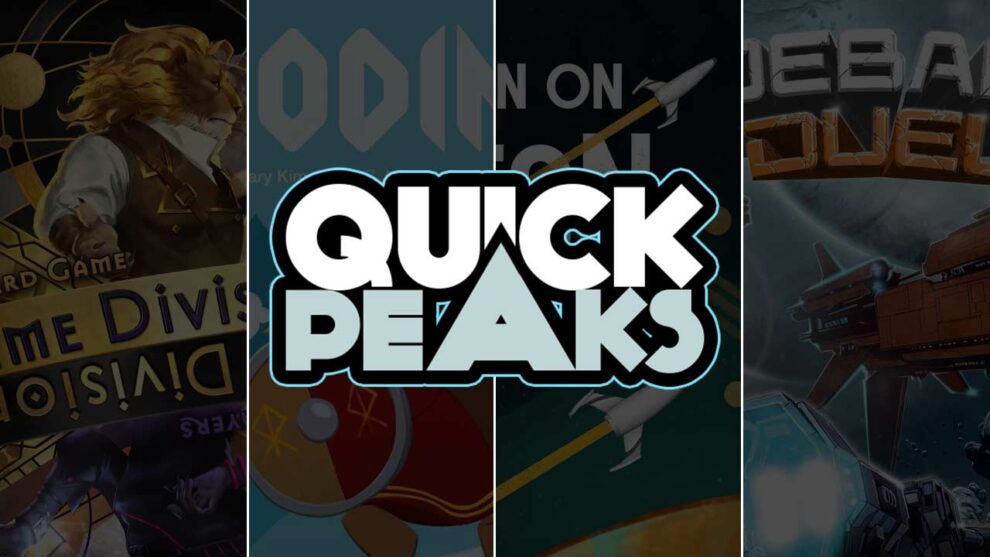

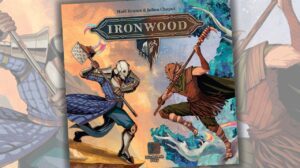
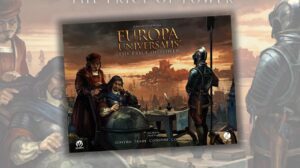
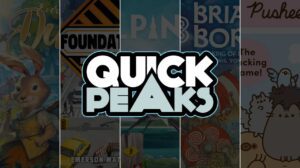
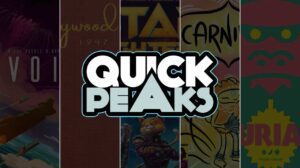




Add Comment